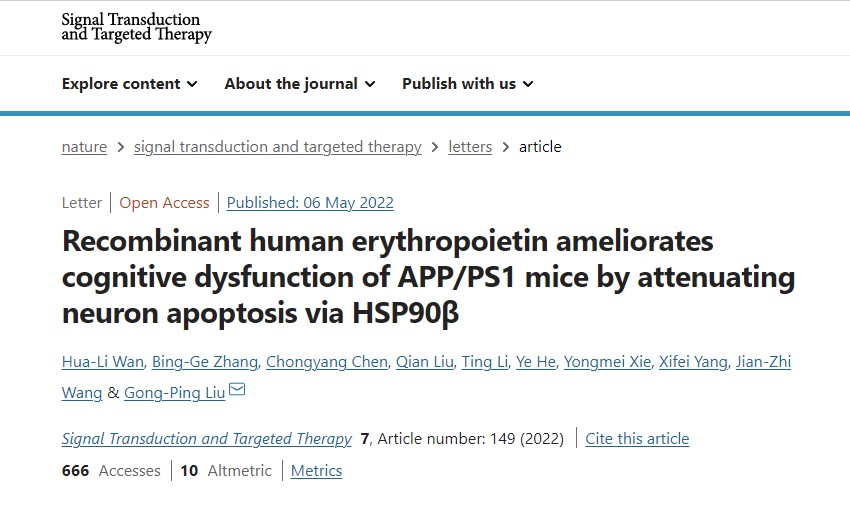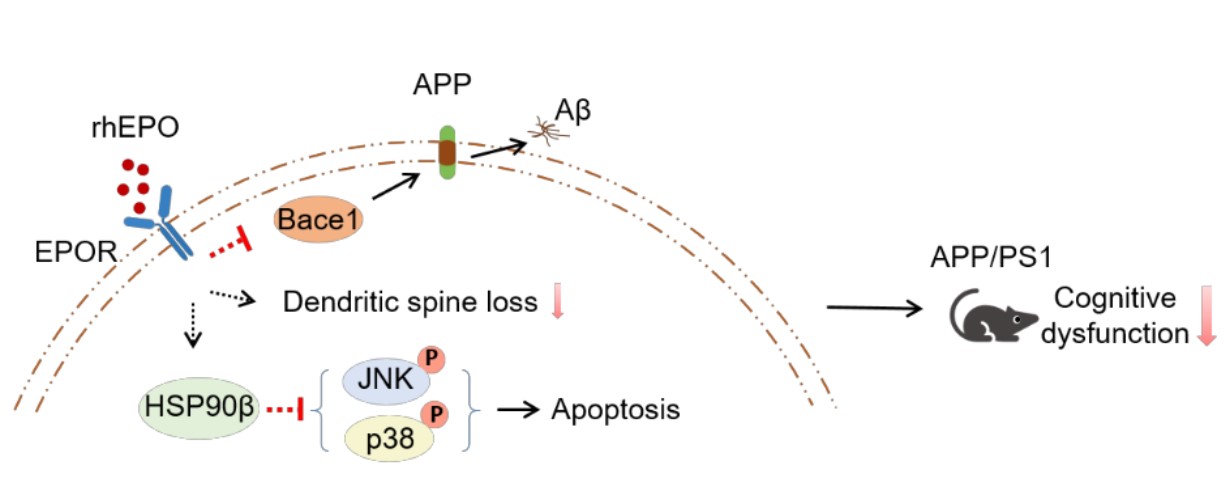Prof. Gongping LIU's team have published their latest findings entitled Recombinant human erythropoietin ameliorates cognitive dysfunction of APP/PS1 mice by attenuating neuron apoptosis via HSP90β in Signal Transduction and Targeted Therapy (IF = 18.187). Huali WAN, Bingge ZHANG and Chongyang CHEN are co-first authors and Prof. Gongping LIU is the corresponding author.

Lower hemoglobin/anemia in the elderly is found to be associated with cognitive impairment and Alzheimer's disease (AD), implying that erythropoietin (EPO) may be of benefit for AD. As a clinically safe-to-use drug, besides its hematopoietic function, recombinant human EPO (rhEPO) is reported to present multifaceted neuroprotective effects. Unfortunately, few clinical studies investigated the effect of rhEPO in AD patients. The dose, the therapeutic window, and duration of treatment may be critical influencing factors for clinical applications of EPO.
Prof. LIU's team found that rhEPO treatment attenuated JNK/P38 pathway associated apoptosis via upregulation of HSP90β, reduced Aβ load, and reversed dendritic spine loss, together contributing to ameliorating the cognitive impairment of APP/PS1 mice. Preventive treatment also promoted angiogenesis and inhibited neuroinflammation. The study revealed that early prevention with high dose rhEPO treatment brought better cognitive improvement, which provides new clues for rhEPO in clinical trials for AD.

The study was funded by the general project of the National Natural Science Foundation of China and the National Key Research and Development Program of the Ministry of Science and Technology for Chronic Diseases.
Link to the paper: https://doi.org/10.1038/s41392-022-00998-w